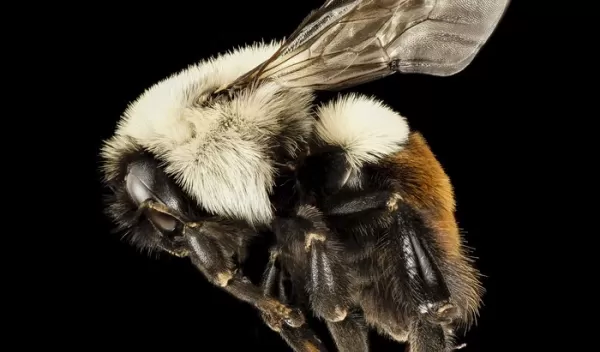
Rising temperatures overcook bumblebees' brunch
Bumblebees pollinate many of our favorite foods, but their own diet is being upset by climate change, according to a new University of California, Riverside study.
There’s a sweet spot where the floral nectar bees eat has just the right balance of microbes like bacteria and yeast in it. Hotter weather can upset that balance, endangering the bees' health and, potentially, our own.
A U.S. National Science Foundation-funded study in the journal Microbial Ecology examines the effects of these nectar composition changes on an American bumblebee. Without bumblebees, who perform a type of pollination that honeybees do not, it would be difficult to mass produce food crops like tomatoes, blueberries, peppers or potatoes.
"Micro changes in floral nectar may alter the way bees forage and look for food, affecting their health and in turn potentially affecting human health by reducing the availability of fresh foods," said UC Riverside entomologist and study lead Kaleigh Russell.
Bumblebees are attracted to nectar with some microbes in it, but too much of a good thing can deter them, Russell said.
With even a small increase in temperature, microbes' metabolism speeds up, causing them to reproduce more and eat up a higher percentage of the sugars in the nectar. "Less sugar means the nectar could be less palatable for our pollinators," Russell said.
To test the bumblebees' taste preferences, Russell made nectar in a laboratory. Some was sterile and some contained microbes; she grew both at lower and a higher temperatures.
The lower temperature, 80.6 degrees Fahrenheit, represents the average springtime high for Riverside, California in 2017. The higher temperature, 89.6 F, corresponds to what the predicted average temperature will be at the end of the century due to climate change.
A clear preference for some level of microbes was evident even when the nectar contained less sugar. However, the bees only went for the less sugary nectar containing a moderate number of microbes at the cooler temperature. They did not prefer the nectar with many microbes, or the nectar with no microbes at all.
